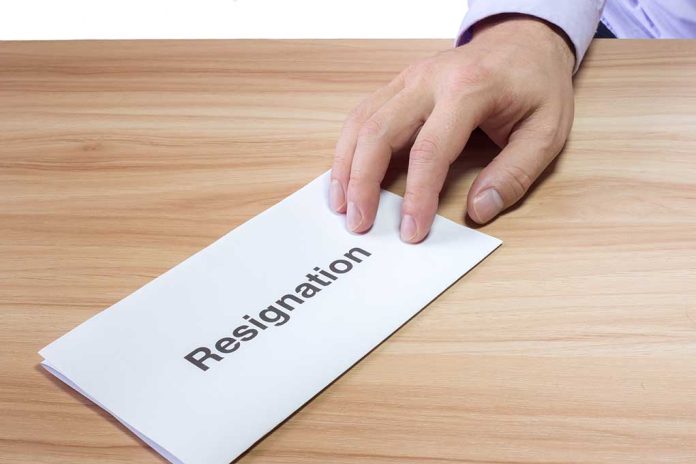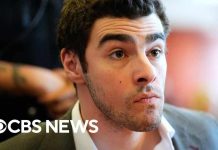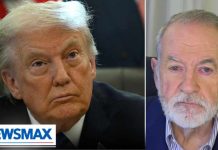
Andrew Cuomo fiercely defended his controversial gubernatorial record during a chaotic NYC mayoral debate as Democratic rivals battered him with accusations about his pandemic response, sexual harassment allegations, and billionaire connections.
Key Takeaways
- Cuomo, who resigned as governor in 2021 amid sexual misconduct allegations, faced intense criticism from eight Democratic rivals during the first NYC mayoral primary debate.
- The former governor was repeatedly confronted about his handling of nursing home deaths during COVID-19 and his response to sexual harassment allegations, which he largely deflected.
- State Assemblyman Zohran Mamdani, a democratic socialist, engaged in particularly heated exchanges with Cuomo, criticizing his connections to wealthy donors.
- Substantive policy discussions about the city’s housing crisis and public safety concerns were frequently overshadowed by personal attacks and interruptions.
- Despite the barrage of criticism, Cuomo remains the frontrunner in the polls ahead of the June 24 election.
Cuomo’s Defense and Deflection Strategy
Andrew Cuomo, attempting a political comeback after his resignation as governor amid sexual misconduct allegations, spent much of the debate on the defensive as rivals hammered his record. When confronted directly about sexual harassment claims that led to his resignation, Cuomo notably sidestepped the allegations, prompting Michael Blake to directly address female viewers. The exchange highlighted Cuomo’s strategy of deflection rather than addressing the serious accusations that ended his gubernatorial career.
“Every woman watching tonight: He was just given a chance to actually address the clear claims that were stated and ignored it,” said Michael Blake, Mayoral Candidate
Cuomo similarly deflected criticism of his pandemic response, particularly regarding nursing home deaths and data reporting. He dismissed the federal investigation into nursing home data as politically motivated, a familiar refrain from his final days as governor. City Council Speaker Adrienne Adams delivered one of the night’s most pointed attacks, questioning Cuomo’s lack of regret over child care cuts and his administration’s slow response in providing resources to minority communities during the height of the pandemic.
Cuomo vs. Mamdani: The Night’s Central Conflict
The most contentious exchanges of the evening occurred between Cuomo and State Assemblyman Zohran Mamdani. Despite leading in the polls, Cuomo repeatedly targeted Mamdani, questioning his experience and qualifications for the mayor’s office. Mamdani, representing the progressive wing of the party, countered by highlighting Cuomo’s connections to wealthy donors and suggesting these relationships influenced his governance, particularly in relation to housing policy and corporate interests in New York.
“The difference between myself and Andrew Cuomo is that my campaign is not funded by the very billionaires who put Donald Trump in D.C.,” said Zohran Mamdani, State Assemblyman
Their exchanges became so heated that moderators frequently had to intervene to maintain order. In one particularly tense moment, Cuomo’s response to a question about President Trump led to a sharp rebuke from Mamdani, who suggested Cuomo’s wealthy donors overlapped with Trump’s supporters. This pattern of interruptions and personal attacks largely overshadowed substantive policy discussions throughout the debate.
Policy Discussions Lost in the Crossfire
Despite the moderators’ attempts to focus on critical issues facing New York City, substantive policy discussions were frequently derailed by personal attacks. The city’s housing crisis received some attention, with progressive candidates including Mamdani, Blake, and State Senator Jessica Ramos advocating for rent freezes and stronger tenant protections. In contrast, former hedge fund executive Whitney Tilson argued for increasing housing supply through development, highlighting the ideological divide among the candidates.
“No regrets when it comes to cutting child care? No regrets when it comes to slow-walking PPE and vaccinations in the season of Covid to Black and brown communities? Really, no regrets?” – Adrienne Adams, City Council Speaker
Public safety emerged as another key issue, particularly regarding the subway system. Cuomo made one of the evening’s boldest promises, pledging to address homelessness in the subway system within his first 30 days if elected mayor. This commitment will likely face scrutiny in future debates, as voters question the feasibility of such a rapid transformation of a complex social issue that has challenged city leaders for decades. With the June 24 election approaching, these policy differences may become more pronounced as candidates attempt to distinguish themselves from the crowded field.



